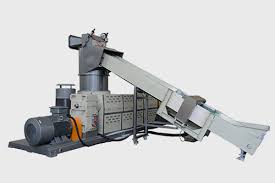In the ongoing battle against environmental degradation, innovative solutions are emerging to tackle one of the most pressing issues of our time: plastic waste. With the proliferation of single-use plastics and inadequate waste management infrastructure, the need for sustainable recycling practices has never been more urgent. However, traditional recycling methods often fall short in effectively processing plastic waste, leading to pollution and resource depletion.
Enter the latest innovations in Plastic Waste Washing and drying Recycling Line, which are poised to revolutionize sustainability efforts by offering efficient, cost-effective, and environmentally friendly solutions to the plastic waste crisis. These cutting-edge technologies represent a significant step forward in the quest for a circular economy, where materials are recycled and reused rather than discarded.
Addressing the Plastic Pollution Problem
Plastic pollution poses a significant threat to ecosystems, wildlife, and human health. Each year, millions of tons of plastic waste end up in landfills, waterways, and oceans, causing irreversible harm to the environment. Traditional recycling processes often struggle to handle contaminated or mixed plastics, leading to low recycling rates and increased pollution. Plastic waste washing and drying recycling lines aim to change that by providing a comprehensive solution for cleaning and processing plastic waste.
How Plastic Waste Washing and Drying Recycling Lines Work
At the heart of these innovative systems are advanced washing and drying technologies that effectively remove impurities, contaminants, and residues from plastic waste. The process typically begins with the shredding of plastic materials into smaller pieces to facilitate washing and separation. The shredded plastic is then fed into a series of washing tanks, where it undergoes thorough cleaning using water, detergents, and mechanical agitation.
Once cleaned, the plastic undergoes a drying process to remove excess moisture, ensuring optimal quality for further processing. Advanced drying techniques such as centrifugal drying or hot air drying are employed to achieve fast and efficient drying without compromising the integrity of the plastic material. The result is clean, dry plastic flakes or pellets that are ready for use in the production of new plastic products.
Key Features and Benefits
Plastic waste washing and drying recycling lines offer several key features and benefits that set them apart from traditional recycling methods:
- Efficient Cleaning: These recycling lines are equipped with advanced washing technologies that can effectively remove contaminants and impurities from plastic waste, including dirt, grease, and residues.
- Water Conservation: Many of these systems incorporate water recycling and filtration systems, minimizing water consumption and reducing environmental impact.
- Energy Efficiency: Advanced drying technologies ensure fast and efficient drying of plastic materials while minimizing energy consumption.
- Versatility: Plastic waste washing and drying recycling lines are designed to handle a wide range of plastic materials, including PET, HDPE, LDPE, and PP, allowing for greater flexibility in recycling operations.
- Scalability: These systems can be scaled to meet the needs of various recycling facilities, from small-scale operations to large industrial plants.
- Environmental Benefits: By diverting plastic waste from landfills and incinerators, these recycling lines help reduce greenhouse gas emissions, conserve natural resources, and mitigate the impacts of plastic pollution on ecosystems and wildlife.
Conclusion
The latest innovations in plastic waste washing and drying recycling lines represent a significant breakthrough in the quest for sustainable waste management solutions. By offering efficient cleaning and processing of plastic waste, these technologies are revolutionizing sustainability efforts and paving the way for a more circular economy. With continued advancements and investments in recycling infrastructure, we can move closer to a future where plastic waste is no longer a threat to the planet but a valuable resource in the journey towards a greener, more sustainable world.
For more information on plastic waste washing and drying recycling lines, visit RecyclingMachine.vip.



